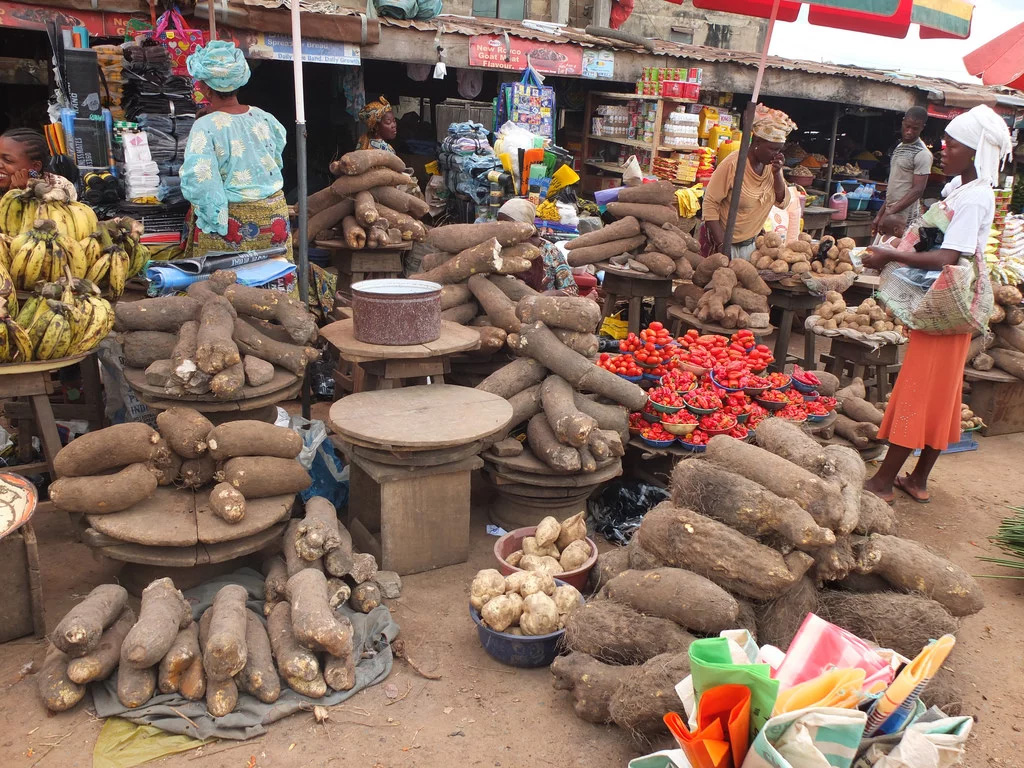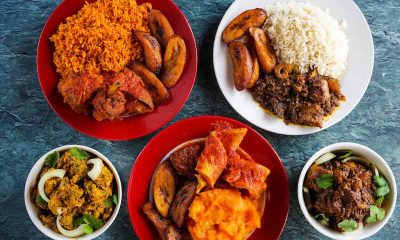metro
High food prices threaten households’ incomes • More families on the brink

Rising costs of food prices and essentials are increasingly reducing households’ disposable incomes and pushing more families to the brink of poverty.
Experts said insecurity and high energy prices have further widened the fault lines and limited the ability of the country to bridge its huge food demand with domestic supply. With the global food crisis being fuelled by the Russia-Ukraine escalation, Nigeria’s food insecurity could worsen without urgent measures.
Managing Director, Financial Derivatives Company Limited, Bismarck Rewane, said Nigerians spend 57 per cent of their income on food alone, adding that domestic food prices remain high and the global food price index hit record high last month. He said growing food prices could push an additional six million people into poverty.
“An acute lack of funding and credit, limited access to markets, lack of access to information, low use of mechanisation, transportation and logistics to smallholder farmers are the main challenges facing the agricultural industry,” Rewane said.
The economist explained that flour and diesel, which are the major costs components in the baking of bread, accounts for 70 per cent and 15 per cent of the total costs.
“This is likely to push upwards the price of a loaf of bread from N800 two months ago to N900. In spite of the price surge, wages have remained static or even declined in real terms. Consequently, price resistance of consumers is increasing and many are switching to affordable substitutes. In some cases, as is empirically evident, we have noticed a drop in the quantity of goods demanded. Since price inflation is not a Nigeria-specific phenomenon, there are indications that the price spiral is not likely to be short-lived,” Rewane said.
READ ALSO:
- Man, 5 relatives die after traditional marriage in Enugu community
- It’s crime to enrol your kids in private schools, Akeredolu warns teachers
- NDDC: Don’t set N-Delta on fire, S-South elders warn Malami
He explained that while an increase in interest rate is intended to reduce market liquidity and taper inflationary pressure, Nigeria’s inflation stoking factors appear to be more structural and cost-push.
“Monetary policies are usually less effective in addressing supply-induced inflationary pressure. Hence, inflationary pressures could persist if monetary tightening is not complemented by structural reforms and fiscal policy responses.
“We expect consumer price inflation to remain elevated in the coming months due to the lingering economic shocks from the Russian-Ukraine war. This will be further compounded by currency pressures. While the Naira is expected to appreciate marginally in the short-term as party delegates continue to sell their spoils, it is likely to be short-lived as Nigeria continues to grapple with a drop in dollar inflows,” Rewane said.
Managing Director, Centre for the Promotion of private Enterprise (CPPE) Dr. Muda Yusuf, agreed that the soaring cost of energy had taken a toll on food prices. He explained that with the rising cost of diesel, which has increased by over 500 per cent, the cost of aviation fuel, which has gone up by another 400 per cent and the cost of gas, which has increased by over 100 per cent, food movement and other food logistics had been grossly impacted.
“The cost of transportation has reached unprecedented levels, especially the cost of haulage, because of the escalating cost of diesel. Costs of operation and production have gone up from between 30 and 100 per cent as a result of this and also the exchange rate crisis. So, the final consumers have to bear the brunt, unfortunately,” Yusuf said.
“It is on record that bandits and terrorists have kept farmers at home and, in some cases, said to be collecting rents from farmers to allow them farm.
“This has continued to negatively impact capacity utilisation, turnover, cost of production and the value delivery to shareholders. Some source raw materials from neighbouring West African countries as they cannot get same here due to the insecurity issues which has prevented farmers to be on their farms,” Yusuf said.
READ ALSO:
- Shelling near Ukraine nuclear plant fuels disaster fears; Russia pounds Donbas
- TASUED Suspends HOD Wanted By ICPC Over Sex-For-Marks
- Man arraigned for punching LASTMAwoman, touching breast
Chairman, All Farmers Association of Nigeria (AFAN), Lagos State Branch, Otunba Femi Oke, warned that a 100 kg bag price of beans could sell for more than N100,000 from October, if farmers are not allowed to establish vigilante groups to protect their farmland.
He urged the government to confront the impact of the current security crisis on strategic food commodities.
Aside from Boko Haram insurgency crisis, he noted that banditry across farmlands has taken a toll on sector, driving farmers away from cultivating crops and putting a strain on food production.
Oke warned that insecurity was going to drive an acute rise in food prices with the gruesome activities of kidnappers and bandits displacing farming communities and limiting agricultural production. He expressed concerns that banditry threat has caused several farmers to flee the tense states such as Adamawa, Borno and Yobe, deserted their farmlands where beans and other food items are cultivated escaped for safety.
Experts maintained that supply chains for food raw materials imports into Africa continue to be impacted by Russia’s war in Ukraine, so competition for alternative resources among local producers remains high.
Data from the Nigeria Bureau of Statistics (NBS) showed that food prices in the country were 22.02 percent higher in July than same month last year. Items most responsible for this food inflation were bread, cereals, tubers, meat, fish, oil, and fat, the NBS noted.
The price of flour and diesel spiked by 76.7 per cent and 209.37 per cent to N26,500/ bag and N750/ litre respectively between last year and now. Prices of wheat, which is a major input for the production of bread, spaghetti, noodles, macaroni and many others, have risen astronomically. The product, which, last year, sold for between N25, 000 and N26, 000 per 100kg, now goes for as much as N39, 000 to N40, 000, depending on the market.
Accordingly, prices of food products which have wheat as major ingredient particularly bread have soared compared to their prices before the outbreak of the war. For instance, bread has suddenly become luxury, and is fast disappearing from the menu table of most Nigerians due to increase in its prices.
For instance, a medium loaf of bread costs between N600 and 700, up from about N400 to N450. A big loaf of bread that can barely feed a family of three now costs as high as between N800 and N1, 000, depending on the brand. Similarly, macaroni, which sold for about N3, 200 last year, is now sold for N4, 800. Also, from about N2, 900 to N3, 000, last year, noodles now go for N4, 050 to N4, 200.
Further data from www.statista.com showed that food prices in Nigeria increased considerably last April when compared to April last year. It noted that Tomato, groundnut oil, and palm oil prices increased the most. In particular, the price of a kilogram of tomato grew by over 53 percent compared to the previous year, while the price of vegetable oil rose by 46 percent. Among all selected food products, none of the selected foods recorded a decrease in price. In fact, Nigeria, the research firm said, is among the countries with the highest inflation rates in the world and has recorded a fast growing Consumer Price Index (CPI).
READ ALSO:
- Kaduna School Graduates 82 Qur’an Memorisers
- 10 states in Nigeria have higher GDP than some African countries – Osinbajo
- NDLEA foils attempt to export tramadol, arrests 8
A report conducted primarily by United Nations Food and Agriculture Organisation (FAO) and the World Food Programme (WFP), underlined that food insecurity in parts of Nigeria has reached “catastrophic” levels.
According to the report, 19.5 million Nigerians are “facing high levels of acute food insecurity”, including 1.2 million in an emergency, if humanitarian interventions are not scaled up and sustained. The situation remains worrisome, as over 1.7 million children under five years of age are expected to suffer from acute malnutrition through to August 2022 – a 34 per cent increase compared to the same period in 2021.
A critical highlight in the report showed that high prices of fuel and inputs, coupled with the high likelihood of poor rains in the southern and middle belt regions of the country, weigh on production prospects of the ongoing 2022 main agricultural season, raising concerns about access to food for vulnerable households.
Reflecting the high numbers of food insecurity, the report noted that the situation remains extremely concerning in the conflict-affected areas of northern Nigeria, where insecurity and access challenges are likely to persist.
The FAO and WFP report further identified the “continuing currency weakness, above-average inflation and a growing fiscal deficit in 2022, amid increasing costs of imported foods, including wheat, are likely to add pressure to prices in the outlook period.” It also pointed out that prices of local cereals in early 2022 were up to 25 per cent higher year-on-year and well above the five-year average.
A report by Quartz blames the high rise in food prices in the country on the knock-on effects of previous government policies like the two-year closure of land borders.
FAO and the WFP urged the government to distribute home-gardening inputs to IDPs and host populations to allow for the diversification of diets.
Among other things, the FAO and WFP also recommended that the government support agricultural-based livelihoods activities for the upcoming cassava, rice, maise and millet planting season starting, targeting vulnerable households with access to land for cultivation.
Oke proffered that a guarantee of security for the affected populations would encourage them to return to farm to continue food production.
The Nation
metro
Minister inspects Independence Bridge in Lagos after reopening

Minister inspects Independence Bridge in Lagos after reopening
Minister of Works, Senator David Umahi, has visited the Independence Bridge in Lagos on Thursday after ordering its immediate reopening.
The minister on Wednesday ordered the reopening of the bridge shut for repair work on Wednesday following the massive gridlock that stretched from Lekki through Victoria Island to Falomo Bridge and beyond.
However, the commencement of repairs on Wednesday caused major traffic with Lagos residents spending hours on the road.
The minister’s visit, it was learnt, was to assess the rehabilitation and how to restructure the work in a way to cause minimal disruption to movement of people using the bridge and alternative roads.
A statement signed by his Special Adviser on Media, Hon. Orji Uchenna Orji, in Abuja on Thursday, confirmed the minister’s arrival in Lagos for the visit.
“Less than 24 hours after the sad traffic experience on the Independence Bridge in Lagos, the Honourable Minister of Works, His Excellency, Sen. Engr. Nweze David Umahi CON, has arrived in Lagos to assess the situation with a view to providing immediate and permanent intervention,” the statement read.
The Federal Controller of Works, Lagos, Mrs Olukorede Kesha, had earlier confirmed the reopening of the bridge.
She expressed the Ministry of Works’ regret for the inconvenience caused to the motoring public by the closure and appealed for their understanding and cooperation
She had said, “Efforts are currently ongoing to ensure palliative works are carried out on the already opened bridge to make it motorable .
“The ministry hereby express regret for the inconvenience caused to the motoring public by the closure and appealed for their understanding and cooperation.”
metro
Man stabs friend over woman in FCT council

Man stabs friend over woman in FCT council
A 27-year -old man, Rabiu Suleiman, has reportedly stabbed and inflicted serious injuries on his friend, Yunusa Muazu, during a fight over a woman at Tipper garage area of Gwagwalada in Gwagwalada Area Council of the FCT.
A resident of the area, who simply gave his name as Sanusi, said the incident occurred on Tuesday night after a fight broke out at a viewing centre at Unguwar Dodo area of the town.
He said Suleiman had accused his friend, Muazu of dating his friend, Jamila Yakubu, who he intends to marry.
He said trouble started when Jamila left Suleiman’s house on Tuesday around 8:34 pm, only for him to meet her with his friend, Muazu, discussing at a viewing centre, where he had gone to watch football.
He said Suleiman, upon sighting his woman with his friend, angrily walked straight to them and slapped him, a situation, which resulted in a fight between them.
He said in the process, Suleiman allegedly pulled out a knife and stabbed his friend in the back, which attracted the attention of people at the viewing centre.
READ ALSO:
- South African court acquits Nigerian pastor of rape after 8 years in jail
- Man jailed 3 months for non-declaration of $30,000 at airport
- More heads to roll in NNPCL, subsidiaries as Ojulari assumes office
According to him, some people at the centre, who tried to separate them, were overpowered, not until when some vigilantes rushed to the scene and arrested Suleiman.
He said his friend, who was lying on the floor in a pool of his blood, was rushed to a nearby hospital.
He said the lady quietly left the scene when the fight broke out.
A member of the vigilante, Salihu Bala, who confirmed the incident, said the suspect had been arrested and handed over to security personnel in the area.
He said the vigilantes were making efforts to trace the woman’s location and arrest her.
He said, “The vigilantes even went to the family house of the girl on Wednesday morning but could not find her but we are still trailing her movement to ensure she is arrested.”
Bala said the injured victim was recuperating at the hospital, alleging that the victim and his friend were into drugs.
The spokeswoman of the FCT police command, SP Josephine Adeh, did not respond to the calls and text messages sent to her on the incident.
Man stabs friend over woman in FCT council
metro
South African court acquits Nigerian pastor of rape after 8 years in jail

South African court acquits Nigerian pastor of rape after 8 years in jail
A High Court in the Eastern Cape division of South Africa has acquitted Timothy Omotoso, a Nigerian televangelist, accused of raping young women in his church.
Omotoso and his two co-defendants were arraigned on a 32-count charge bordering on rape and human trafficking.
News24 reported that Omotoso would be deported to Nigeria immediately after the judgment.
The co-defendants are Lusanda Sulani and Zukiswa Sitho.
READ ALSO:
- More heads to roll in NNPCL, subsidiaries as Ojulari assumes office
- Barcelona beat Atletico to set up cup final against Real Madrid
- NNPCL hikes petrol pump price to N950/litre
Several young women had accused the pastor of luring them into his home in Umhlanga, a town in South Africa, where he allegedly molested them.
In April 2017, the Nigerian pastor was arrested shortly after he landed at an airport in South Africa.
He is the senior pastor of the Jesus Dominion International based in Durban, South Africa. He is also the founder of Tim Omotoso Global Outreach and Ancient of Day Broadcasting Network
According to News24, Irma Schoeman, the trial judge, yesterday, ruled that the state prosecutor did not prove the case beyond reasonable doubt.
The Nigerian pastor had been in South African prison since his arrest in 2017.
South African court acquits Nigerian pastor of rape after 8 years in jail
-

 metro2 days ago
metro2 days agoBREAKING: Senator Natasha defies restrictions, arrives homecoming rally by helicopter [VIDEO]
-

 metro2 days ago
metro2 days agoUromi: Edo residents flee towns over likely reprisal attack, arrest
-

 metro2 days ago
metro2 days agoBreaking: ‘Cancel your homecoming’ — Police tell Senator Natasha
-

 metro1 day ago
metro1 day agoBreaking: Tinubu sacks Kyari, appoints Ojulari as new NNPCL GCEO
-

 metro2 days ago
metro2 days agoAmosun, Adeola engage in verbal attack over project diversion allegation
-

 Auto3 days ago
Auto3 days agoCFAO subsidiary LOXEA unveils BYD electric vehicles in Nigeria
-

 metro2 days ago
metro2 days agoKogi LG imposes curfew ahead of Natasha’s homecoming event
-

 International2 days ago
International2 days agoIran warns US against attack, threatens with nuclear weapon







